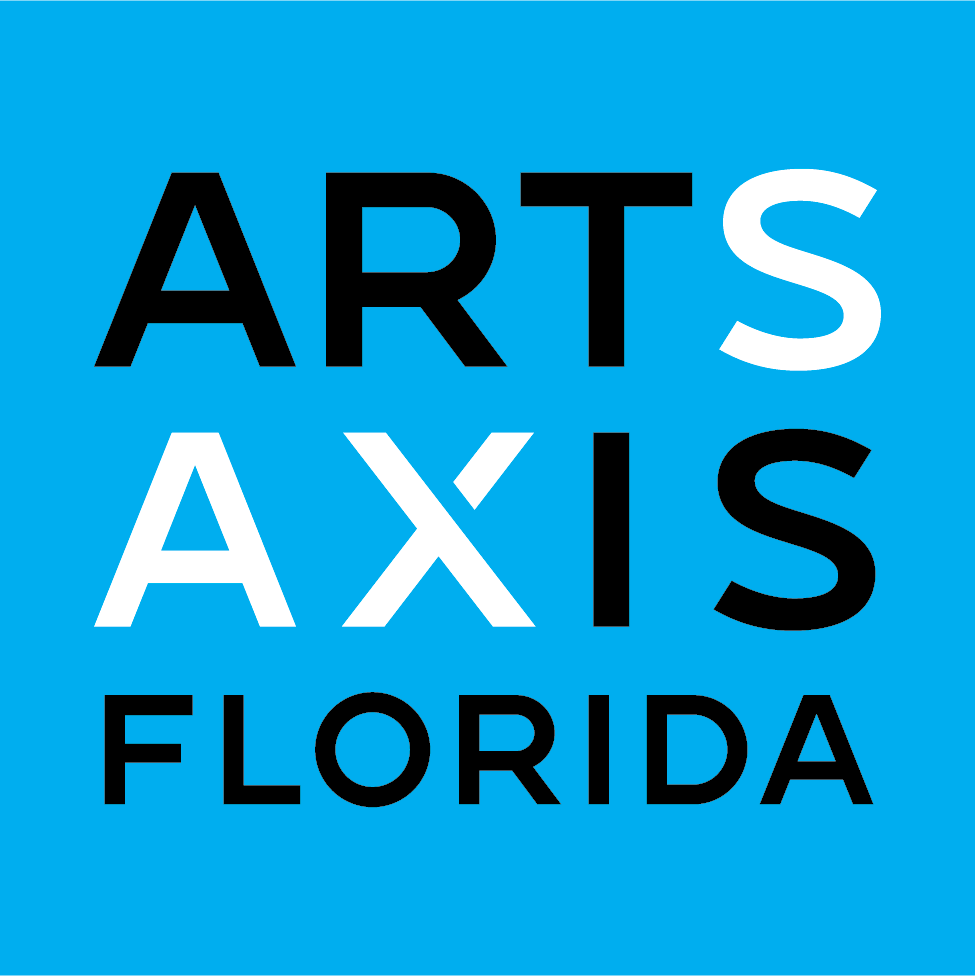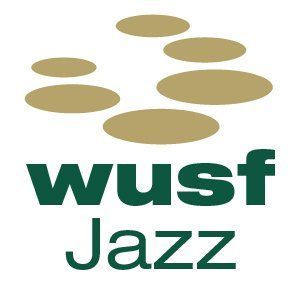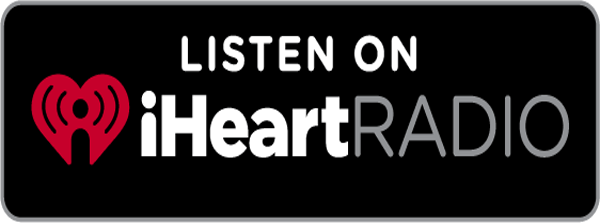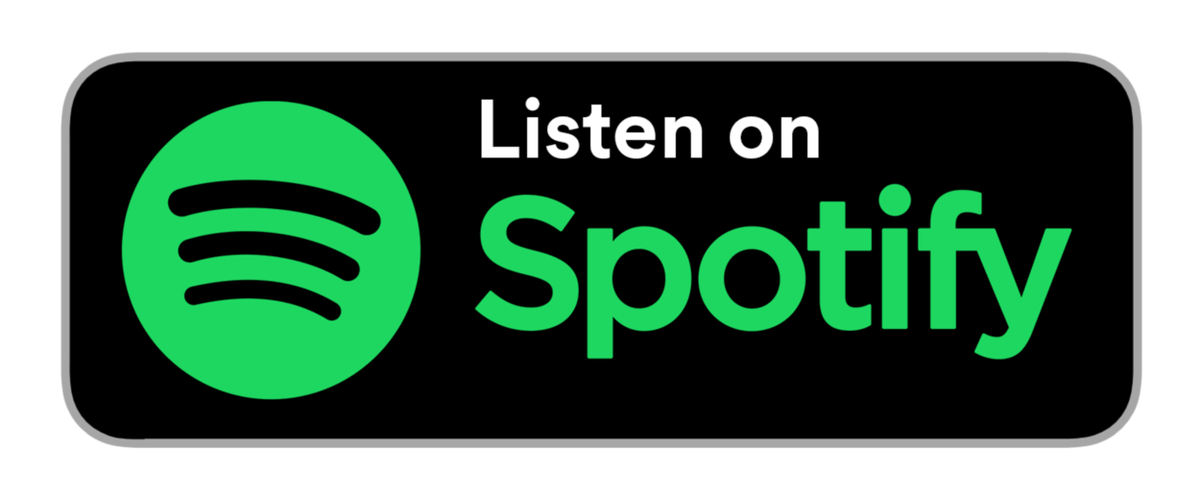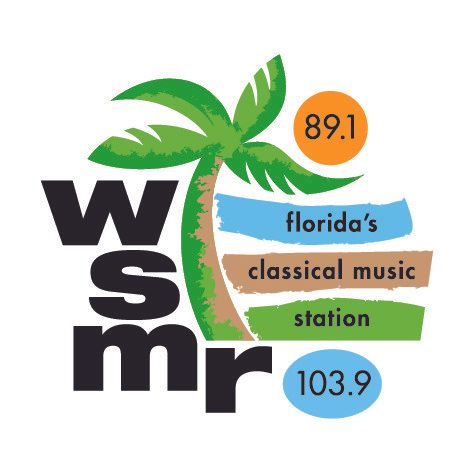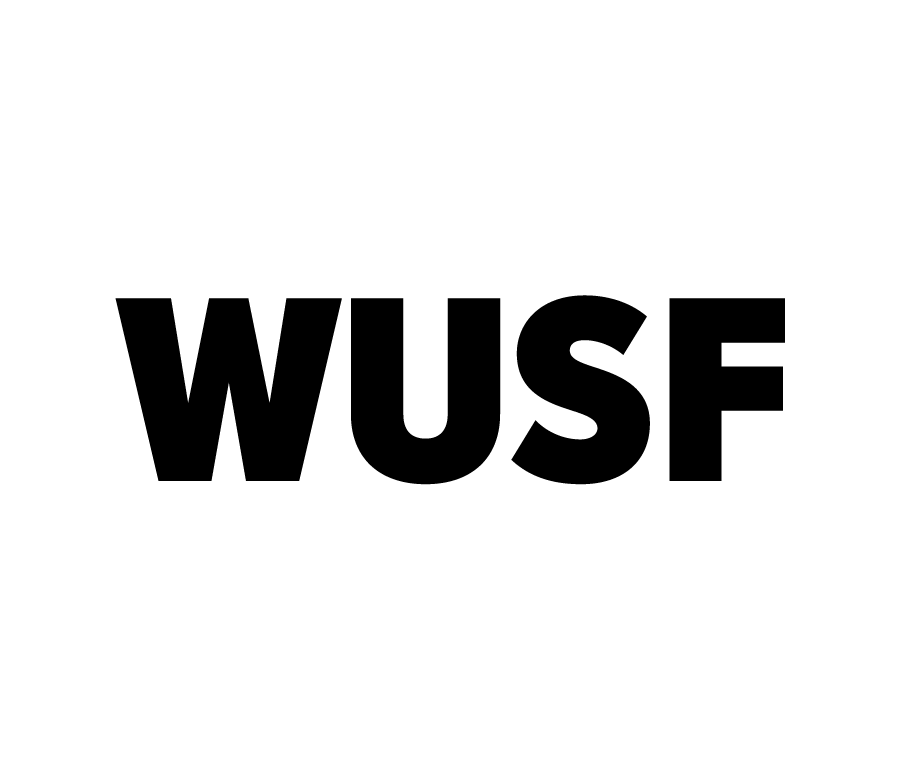00:00:04:16 - 00:00:35:15
BRIANA JACKSON
Hi. Welcome to the Arts Axis Florida podcast. I'm your host, Brianna Jackson. Arts Axis Florida is a comprehensive initiative designed to shine a spotlight on your neighborhood's diverse arts organizations. Each episode will highlight their programs and more importantly, amplify the voices of the people they impact. Conversations, Community, and Connections; that is a value in engaging with your local arts organizations.
00:00:36:09 - 00:00:37:21
BRIANA JACKSON
Arts Axis equals Arts Access.
00:00:37:21 - 00:01:00:18
SPONSOR
Support for Arts Axis Florida comes from the Community Foundation of Tampa Bay, championing philanthropy, encouraging and connecting givers to bring lasting good investing in education and economic mobility. Learn more at C F Tampa Bay dot org.
00:01:09:17 - 00:01:38:19
BRIANA JACKSON
In this episode of the Arts Axis Florida podcast, we'll interview three organizations that are doing some amazing work in the health care and mental health community by incorporating the arts into treatment. We speak with Kerry Kriseman from Creative Clay, whose mission is to make art accessible for people with disabilities while striving to achieve equality. We also talk with Amy Wigs from the Imperial Symphony Orchestra and Alice Nuttall from the Lakeland Regional Health.
00:01:39:12 - 00:02:06:02
BRIANA JACKSON
The orchestra's partnership with Lakeland Regional Health, who works with caregivers and patients through music. Finally, we speak with Norah Paine from New Tampa Players about the Penguin Project, which provides theatrical experiences for young adults and students with special needs. If you or someone you know has mental illness, is struggling emotionally, or has concerns about their mental health. There are ways to get help.
00:02:06:19 - 00:02:15:02
BRIANA JACKSON
We have provided access to these resources in our shownotes. Hi, Kerry Welcome to the Arts Axis Florida podcast. How are you?
00:02:15:10 - 00:02:18:16
KERRY KRISEMAN
I'm doing great. Thank you. And thank you for having me today.
00:02:18:17 - 00:02:24:11
BRIANA JACKSON
How about you tell us a little bit about what Creative Clay is exactly as well as the mission behind it?
00:02:25:14 - 00:02:47:01
KERRY KRISEMAN
Creative Clay is an nonprofit in Saint Petersburg, Florida, and our vision is to make the arts accessible to all. Our mission is to help people with disabilities achieve a full and inclusive life through access to the arts. We provide expressive educational and vocational experiences.
00:02:47:09 - 00:02:48:20
BRIANA JACKSON
And what about creative care?
00:02:49:15 - 00:03:18:07
KERRY KRISEMAN
Creative care is our arts and wellness program. It serves patients, families and caregivers in health care communities. It was started in 2008 as a pilot project with a grant from the Allegheny Franciscan Ministries and the idea was to offer arts to patients, families and clinicians at Saint Anthony's Hospital [inaudible] Children's Hospital. Benedict Haven, which is a group home and the Ronald McDonald House.
00:03:19:04 - 00:03:49:00
KERRY KRISEMAN
In 2013, the Saint Pete Glitter queens presented creative clay with a $28,550 check for our creative care children's programs. And then we were contracted by Saint Anthony's to provide arts and health care to their patients and staff in the behavioral health, skilled nursing, orthopedics and oncology units. And that program ended in 2015 when Saint Anthony's began its own internal arts and health care program.
00:03:49:00 - 00:04:28:15
KERRY KRISEMAN
Before the pandemic Creative Cares teaching artists were providing art outreach at Goodwill, Casa, Menorah Manor, and Sable Palms. And later this year, Creative Clay hopes to launch the creative care workshops for women, which is a therapeutic arts program for female military personnel and veterans. This program will serve female veterans or active duty military one of our teaching artists, Kinsey Rodriguez, is a registered art therapist, and she and our director of Art Link Vocational Services, Marcy Miller, will oversee the program over 48 week sessions.
00:04:29:03 - 00:05:01:14
KERRY KRISEMAN
And this program is funded in part by Community Foundation of Tampa Bay and the goal of this new program is to tailor art experiences that will help reduce the effects of post-traumatic stress and depression symptoms. Often associated with the unique experiences that women in the military have. That's where creative care stands for right now. It's been, you know, it's a long standing program, but it's transitioned through the years based on how arts and health care has changed that industry.
00:05:02:19 - 00:05:10:06
BRIANA JACKSON
And how has that how has art impacted both patients and caregivers within the health care setting?
00:05:11:01 - 00:05:37:20
KERRY KRISEMAN
It it provides a stress relief when when they're going through a difficult time. It also gives caregivers, if the caregiver is present when the art therapist is there, it gives them a chance to interact with their patient or loved one in a different way, rather than just the caregiving of taking one to the doctor overseeing medical care, you know, things like that, that that are less emotional.
00:05:37:20 - 00:06:04:10
KERRY KRISEMAN
It allows them to express themselves emotionally to, you know, when you're going through a health crisis, there's a lot of emotions involved. And sometimes the words don't come, but the images do or the music is soothing. We've had we had teaching artists that came and, you know, maybe played the violin or the guitar and sang with with the patients at an All children's or St Anthony's.
00:06:04:19 - 00:06:33:22
KERRY KRISEMAN
So there's definitely different ways. It's not always about, you know, pen in hand, paintbrush in hand, you know, creating. There's there's different ways to experience the arts and arts. Arts are healing. Like I stated before, and there's certainly lots of data on that. From various organizations. There's the idea that industry has grown. You know, there's there's college majors dedicated to arts and health care now where there wasn't maybe you know, 15 years ago.
00:06:33:22 - 00:06:55:21
KERRY KRISEMAN
So but it helps the patient and caregiver interact in a different way that, you know, is is therapeutic for everyone because caregivers are also under a lot of stress. And definitely, you know, if it helps them connect with the patients in a different way, then there is usually hopefully better outcomes for everyone.
00:06:56:23 - 00:07:07:11
BRIANA JACKSON
And now you say that it seems as though art helps the caregivers understand the patient more and with that and helps aid the the treatment plans.
00:07:08:06 - 00:07:08:17
KERRY KRISEMAN
Yes.
00:07:08:17 - 00:07:10:11
BRIANA JACKSON
For the patients.
00:07:10:11 - 00:07:40:00
KERRY KRISEMAN
It's definitely beneficial for everyone. And, you know, when they when creative care went to Casa, you know, that's the domestic shelter you know, for abused women and men and families. But there is a children's a a family community where family, you know, they could live with their children. It wasn't just women escaping abuse. And they would go and work with the families there, some of our artists.
00:07:40:00 - 00:08:10:17
KERRY KRISEMAN
And, you know, and the creative care instructors could go and work on a Saturday or something and do projects with the kids. And and that's, you know, definitely when children have been through trauma, you know, if they can express it through art, you know, they can they can process their feelings and connect in a different way with the parent that they are with after having escaped maybe an abusive situation where the other parent wasn't so kind to the family.
00:08:10:20 - 00:08:35:19
KERRY KRISEMAN
And that's another way, you know, these aren't people in the hospitals, but they are definitely in crisis and in need of art therapy. When our teams had gone to Sable Palms and Menorah Manor, that's reaching out to, you know, the elder care community or the elder community. Excuse me. And, you know, that's an often neglected segment of our community.
00:08:36:02 - 00:09:04:19
KERRY KRISEMAN
Many people just don't you know, value what they can bring to the table and the interaction that they still need, even though they may be in the later stages of their lives. And that that was a really, really wonderful program. And our artists, we they were on a schedule of going about every Tuesday to Menorah Manor and interacting and creating art with the residents there and it was it was wonderful.
00:09:05:17 - 00:09:16:13
BRIANA JACKSON
That is wonderful that, that community is still included. They shouldn't be forgotten, you know, and art is is definitely therapeutic and healing and should be accessible to all ages.
00:09:16:18 - 00:09:30:23
KERRY KRISEMAN
Exactly. And that's what we try to do. I mean, with even in all at All Children's, there were, you know, I can't say from birth, but there were some very young children that are a team of creative care artists were serving at some point.
00:09:31:02 - 00:09:41:17
BRIANA JACKSON
Well, Kerry thank you so much for your time and sharing more information about Creative Clay and the mission and what you do. And just thank you so much for what you do for our community.
00:09:41:23 - 00:09:50:13
KERRY KRISEMAN
Well, thank you for having me. And thank you for for what you all are doing with this, The Arts Axis platform, and you all are making the arts accessible as well.
00:10:00:10 - 00:10:22:05
BRIANA JACKSON
And Creative Clay is doing some powerful work in the community through art for disabled individuals. More information on them can be found in our shownotes.
00:10:22:05 - 00:10:25:12
BRIANA JACKSON
Hi, Alice and Amy, welcome to the Arts Access Florida podcast.
00:10:26:10 - 00:10:27:22
AMY WIGGS
Thanks so much for having us.
00:10:28:19 - 00:10:38:12
BRIANA JACKSON
Well, I'm really looking forward to learning more about this great organization. So, Amy, I'll start with you. Can you tell us about the Imperial Symphony Orchestra?
00:10:39:13 - 00:11:19:16
AMY WIGGS
I'd be glad to. Since 1965, the Imperial Symphony Orchestra, or a version of it has been performing in and around the Lakeland and Polk County area. We started, as many symphonies do, as a community orchestra and to celebrate our 50th anniversary, we actually made the leap to a professional symphony. And so we represent 48 musicians from Lakeland and Central Florida, and we perform symphony concerts, children's concerts, school day concerts and even an opera.
00:11:19:16 - 00:11:30:22
AMY WIGGS
We're one of the few places, a few symphonies in the world that creates its own opera every year. So we're we're pretty lucky to have such an amazing resource right here in Polk County.
00:11:31:02 - 00:11:40:23
BRIANA JACKSON
Can you tell us a little bit more about the partnership with the Imperial Symphony Orchestra? And Lakeland Regional? How did this idea come to life?
00:11:41:15 - 00:11:52:05
ALICE NUTTAL
Well, Amy, I'm going to let you take that because you actually called me first, and it was one of the best phone calls I've received in months and months. So, Amy, how did you first have the idea?
00:11:52:05 - 00:12:28:15
ALICE NUTTAL
Oh, I love that, Alice, thank you. Well, our my board chair. Yeah, her husband is a physician. And so she has been very intentional about making sure that our health care professionals and our first responders were were taken care of and recognized for all the all that they've been doing. And so we took the steps that we could and dedicated a video concert series and some things to to their honor and trying to recognize them as best as we could.
00:12:28:15 - 00:13:01:19
AMY WIGGS
And I, to be honest, was watching, I think, a CBS News story about how in areas that were much more severely impacted than Lakeland, Florida, obviously, but how the mental health toll that the pandemic was taking on health care workers who were literally having to to make decisions about putting a dying man in the bed of his wife who had just died of COVID.
00:13:02:05 - 00:13:41:01
AMY WIGGS
You know, and they had created kind of a mental health advocacy program there in the hospital. And I thought, you know, we don't have the capacity to do that. We're not mental health counselors. But we certainly have a product that brings people joy and healing. And so what better opportunity than to fulfill our mission and support the people who have, like I said, for a year, been supporting us, keeping us well, delivering our babies, comforting, are sick and infirm family members.
00:13:41:02 - 00:14:05:23
AMY WIGGS
I mean, the the health care profession has taken on so much more, I think, than we realize as a as a society. And so we really wanted to just be able to give something back and share and selfishly too it gives our musicians an opportunity to play. And that's something that feeds their mental health as well.
00:14:05:23 - 00:14:41:02
AMY WIGGS
So when we're in the lobby performing for people, even as they're walking by, you can see their demeanor change. You know, they're kind of rushing in to go to work. But as they see the we've had a mandolin and harpsichord, we tried violin, we had a harp string quartet. And so as you as you see them walk by their shoulders, kind of relax, they stop even just for a second for an extra breath to to take it in before they have to go face the things that they're facing on the shoulders above.
00:14:41:02 - 00:15:15:03
AMY WIGGS
And so we're we're so excited to be able to share this partnership with the medical center and to give something back to the people who have not just given immeasurably of themselves. So I'm appreciative to Alice and Danielle and the whole team at the hospital for allowing us to come in. And I know our musicians have just been super excited to be able to share with with their fellow citizens as well.
00:15:15:16 - 00:15:31:06
BRIANA JACKSON
Wow. What a beautiful partnership. And I as you're talking, I can envision these musicians in the hallways and they're just bringing joy. They're filling the hallway with music and joy. And our front line workers appreciate it so much.
00:15:32:05 - 00:15:56:19
AMY WIGGS
It's nice to be able to drown out the the kind of the monotonous sound of the hospital lobby. I mean, we've all been there and especially now, Alice, you guys have these the temperature scanners. And so there's this kind of constant computerized voice that's saying, "put your wrist here", "you're okay to go," "put your wrist here", "your okay go".
00:15:56:19 - 00:16:07:13
AMY WIGGS
And so which is really important, but it's nice to have something kind of cut through that especially for the folks who get to hear that for 24 hours at a time, I'm sure.
00:16:08:15 - 00:16:50:09
ALICE NUTTAL
And we chose the time they're primarily coming in the evening which is at the end of I mean, some people have been here for 13 hours. Others are coming in to work overnight for their 12 to 13 hour shift and depending on what time they report. It's such an amazing I think thing to kind of as you're leaving to help you sort of like reflect and have that sense of like you said joy and kind of that wonderful sound and gift of the music as you're finishing your day or as you're coming in and you're trying to refresh and get in a good frame of mind to really take that deep breath and go and take care
00:16:50:09 - 00:17:14:01
ALICE NUTTAL
of our patients just as we would, you know, our family members and, you know, for exhausted, weary team members, it really feeds an important part because one of the things that I notice, especially in my work around resiliency, is that exhaustion. You don't only have to get good sleep to repair and restore the type of exhaustion we're feeling.
00:17:14:07 - 00:17:55:13
ALICE NUTTAL
We also need to fill ourselves with nurturing things other than just sleep and time off from work. And one of those things is the arts. And, you know, obviously it's as for some people, it's a bigger part of their lives than others. But all of us are impacted just as we also need to be making time to get out into nature or to connecting with individuals that are restorative and nurturing to us, you know, connections with people, connections with music, connections with anything that gives you a sense of awe, like if you have that overwhelming feeling of beauty in the moment, that is one of the most positive things you can do for your neuro
00:17:55:13 - 00:18:11:17
ALICE NUTTAL
and psychological health. If you can experience those moments of awe more frequently, it actually buffers you more against the hardships and things that we may have on a day to day basis or in something like this. You know, with COVID.
00:18:11:17 - 00:18:32:04
BRIANA JACKSON
Wow. And I love that you said the key word connections. And one thing about 2020 and everything that's happened is it's brought people together. And connection is so important with everyone being isolated or families, you know, being separated from loved ones who were in the ICU. Just the importance of connection And this partnership is certainly bringing that.
00:18:32:23 - 00:19:01:18
ALICE NUTTAL
Very much so. And it's important that we connect with our patients and people in time of crisis. But in order to prevent people having the, you know, these really, really hard moments where they feel like things are crashing down, you need to feel connected on it. I mean, the World Health Organization and CDC, whatever the number one thing we can do to improve mental wellness, to prevent suicide in all sorts of things is connection It is that feeling of I'm not alone.
00:19:01:18 - 00:19:12:12
ALICE NUTTAL
I may be struggling and having a hard day or a hard month or needing some additional support. But you're not alone in it. That connection is what in fact gives people hope.
00:19:12:17 - 00:19:13:03
BRIANA JACKSON
Yes.
00:19:13:21 - 00:19:40:15
AMY WIGGS
Yes. I love that you that you called it a buffer because I think that's that's such an incredible descriptor of that you know we absolutely know that there are studies that are that tell us not just 30 minutes of active arts activities daily may lower anxiety and depression and help increase life satisfaction that the arts make us feel happier on our well-being index.
00:19:40:19 - 00:20:25:22
AMY WIGGS
And those things then help to create that buffer for when difficult times arise. And I love that you that you described it like that because it is it's it's something like I said even for our musicians being able to accept and manage the realities of the pandemic. And for many of them not being able to work and not being able to perform and what that's meant for their their family life and caring for seniors who live with them, I mean, you know, it's it's just been this opportunity has been so great and kind of rebuilding their buffers.
00:20:25:22 - 00:20:28:01
AMY WIGGS
And so while I really love that description.
00:20:28:12 - 00:20:50:14
ALICE NUTTAL
Yeah, I and you know, the passer bys, we've had so many wonderful comments from people in the medical center, we still had to be really cautious with visitors, of course, because of COVID and the temperature screenings and that sort of thing. But at any given time, we do have folks appropriately in the hospital because they have loved ones in surgery or like we said, having a baby or what have you.
00:20:50:14 - 00:21:11:12
ALICE NUTTAL
And it is also been such an uplifting moment for those individuals because most of the time when you're in a hospital waiting room or lobby, it may not be the best day. You know what I mean? You're it's typically you're here for a test or a procedure or visiting a loved one that is dealing with a medical condition that they need extra support.
00:21:11:12 - 00:21:31:12
ALICE NUTTAL
And so the community impacts have been well beyond just that, you know, the health care team members, but also the people that are here and visiting our medical center. So we thank you. And I feel like it just it's been such a great highlight. It's been so mutually beneficial on both sides to really bring us together.
00:21:32:01 - 00:21:37:16
BRIANA JACKSON
In your clinical career, how have you seen the way music impacts patients and caregivers?
00:21:38:18 - 00:22:07:23
ALICE NUTTAL
Well, I have an interesting career. I'm actually a nurse by trade. I was born in Lakeland, but most of my professional life was spent in Nashville, which is Music City. I went to Vanderbilt, and my first real role was a neuro ICU nurse and in the neuro ICU, you're taking care of patients who've had really big strokes or head trauma and often are in a coma or are very sick and may not be talking.
00:22:08:07 - 00:22:32:20
ALICE NUTTAL
And it was taught to me very early in my career in caring for these patients with big brain injury that often what you needed to do was to ask the family what kind of music did they prefer? Did they have a type of music that they liked? And often when you needed to try to help settle a patient or calm them, we would stream music in the room for that patient and we would keep it at a low volume.
00:22:32:20 - 00:23:10:17
ALICE NUTTAL
So it was calm for them when I worked in a residential treatment facility in Nashville, I worked closely with an organization called MusiCares, and MusiCares is a is a group of recording artists that support people that are in the arts, that need help with substance abuse and mental health conditions. And often musicians don't always have insurance. And what I learned from my work with MusiCares and the residential facilities in Nashville that we're really working to support and care for musicians, was that often in how they've been processed and healed from their mental health and substance abuse?
00:23:10:23 - 00:23:34:10
ALICE NUTTAL
It was also music related. I can't tell you how many processing groups, you know, started with a core piece of music because as we know, I mean, language really comes from primarily the left side of our brain. And much of music may also come from our left side of the brain, but it also transcends and it incorporates the right side of our brain, too.
00:23:34:19 - 00:24:03:01
ALICE NUTTAL
And, you know, understanding the rhythm and like that inherent kind of beat that you feel that like you want to like tap your foot or you know, you really feel that rhythm that is really ingrained in almost our brain stem. I mean, that is a very natural part of our neuro biology. And so if a patient if you're needing to connect with somebody that is in pain or suffering, music is a really wonderful way to do it.
00:24:03:01 - 00:24:29:21
ALICE NUTTAL
And it's a safe way to feel because I mean, and the songs that may make me sad, may make may not have the same emotion for you. But it's a safe way often for us to process that. We may not have words right to say. So whether you're making music whether you're listening to music, whether you're sharing that experience with others, there's so many important, impactful ways.
00:24:29:21 - 00:24:57:17
ALICE NUTTAL
And the last example I'll share with you is that watching a patient that's in in stages or towards the end of Alzheimer's who is not recognizing a family member and, you know, is really struggling to even feed themselves. And if you start to play, you know, a gospel hymn or something that that was important to that person, all of a sudden they know all the words that those moments bring.
00:24:57:17 - 00:25:17:20
ALICE NUTTAL
I mean, it's just really overwhelming. And I've seen that played out over and over again in the work that I've gotten to do now. And even here at Lakeland Regional Health, we care for patients that are in their more senior years in dealing with, you know, diseases of dementia. And music is such an important part of how we connect with those patients.
00:25:17:20 - 00:25:41:03
ALICE NUTTAL
So we haven't been able to have musicians on our medical like actually in the unit in over a year. We used to have some volunteers that came and actually played to our patients and we really look forward to working that in as well. Once we really feel like, you know, the COVID situation is where we can bring visitors again.
00:25:41:03 - 00:25:47:06
ALICE NUTTAL
Safely into patient care areas because we really do support how important that is for patients healing.
00:25:48:01 - 00:25:57:23
BRIANA JACKSON
And thank you for sharing those two stories. It really just shows how music plays such a huge role in brain health and as well as mental health.
00:25:59:04 - 00:26:15:06
ALICE NUTTAL
We're so thankful that we have such a wonderful, vibrant organization here right in Lakeland, and we can't wait to continue to partner with them to help both their musicians and to have the benefits of their beautiful music.
00:26:15:18 - 00:26:30:22
BRIANA JACKSON
Well, Amy and Alice, I want to thank you so much for talking with me today and also building this beautiful partnership that's helping enrich our community and helping those that just need to hear music and just thank you for what you both have been doing.
00:26:46:02 - 00:27:19:12
BRIANA JACKSON
As we just heard, everyone can use some classical music to de-stress. I know I can. Classical WSMR is your locally programed 24/7 classical music station that's dedicated to playing the best works music has to offer when you're feeling stressed. Why not tune in to 89.1 in one or 103.9 to begin your session of relaxation
00:27:19:12 - 00:27:22:12
BRIANA JACKSON
Hi, Nora. Welcome to the Arts Axis Florida podcast.
00:27:23:01 - 00:27:24:10
NORA PAINE
Thank you so much for having me.
00:27:24:18 - 00:27:28:17
BRIANA JACKSON
Why don't we start with who you are and what is new Tampa players?
00:27:29:20 - 00:27:42:01
NORA PAINE
All right. Well, I'm Nora Paine I'm the president of New Tampa Players, and it's a local community theater up here in New Tampa. And we are known for our musicals. We're also known for the Penguin Project.
00:27:42:03 - 00:27:44:21
BRIANA JACKSON
Tell us more about the Penguin Project.
00:27:46:02 - 00:28:11:08
NORA PAINE
Penguin Project is. Well, I found Penguin Project back a couple of years ago. And Penguin Project is a theater program for children and young adults with special needs It was originally created by Dr. Andrew Morgan in Illinois. He's a developmental developmental pediatrician and is heavily involved with community theater. And he saw that his patients did not have access to the same types of theater programs that his own children did.
00:28:11:20 - 00:28:31:01
NORA PAINE
So he took on that obstacle and invented the Penguin Project. There's now 43 replication sites all across the United States, the Penguin Project. And we're the first replication site in Florida. So each year we produce a junior length musical where all the roles are played by children and young adults with special needs. Our youngest is seven and our oldest is 25.
00:28:31:11 - 00:28:54:20
NORA PAINE
And each young artist is matched with a peer mentor who works with them throughout the production process even including the performances. The peer mentor is there to support them, whether they need a lion whispered in their ear or a hand squeeze of reassurance. So in 2019 we produced Aladdin Junior with the cast of 60 and in 2020. Just before before quarantine, we produced Peter Pan Junior with a cast of 80.
00:28:55:12 - 00:28:58:19
NORA PAINE
So we're hoping that we can do Mary Poppins Junior in 2022.
00:28:58:20 - 00:29:19:17
BRIANA JACKSON
Wow. This sounds like such an amazing project. I took a peek at your website because I was so intrigued by what this is, and I noticed that instead of using the term special needs, you refer to these students as young artists, and I can really admire that when they're a part of the Penguin Project. They're a young artist when they're on stage.
00:29:20:06 - 00:29:42:05
NORA PAINE
They definitely are. In all the roles in a Penguin Project production are filled by our young artist our peer mentors are not there to perform. They do perform in the sense that they're on stage, so they don't stand there stoically or anything. You know, they participate in the group numbers and they interact as if there's something going on stage that all of us are supposed to pay attention to.
00:29:42:11 - 00:29:51:02
NORA PAINE
They're paying attention to that, too, so they don't draw away from the performance But the Penguin Project productions are not about the peer mentors. They're all about the young artist.
00:29:51:11 - 00:29:57:05
BRIANA JACKSON
And once the production is over, are there lasting relationships after?
00:29:57:18 - 00:30:19:13
NORA PAINE
They definitely do. And we made a lot of ways to make sure that that happened after and during COVID 19, because many of our young artists have really not going anywhere because of their medical situations during COVID 19. So every Monday, Wednesday and Friday, we have phone calls over Zoom for 30 minutes where they can just chat, you know, it's the how is your day?
00:30:19:13 - 00:30:28:07
NORA PAINE
How is your day? What did you do? What you know? A very popular topic right now is what did you see on Disney plus. So Wandavision has been huge.
00:30:28:10 - 00:30:29:01
BRIANA JACKSON
Oh, yes.
00:30:30:00 - 00:30:57:12
NORA PAINE
It's been huge. So we do those and we've done those ever since the beginning. Of April. We also did Penguin Project at home so that we couldn't do a play over Zoom because that is really, really difficult. But we did a series of four classes, so we divided the whole group here, mentors and young artist into four groups, basically based upon their age and they went through a rotation of classes.
00:30:57:12 - 00:31:19:05
NORA PAINE
One, they worked together to work to write their own play. And we did a table reading of that over Zoom and then in another one, they worked on making their own original choreography to songs that they love. And then we did spoken word poetry. I had a spoken word poet come in and work with them on how to write a poem, and they wrote their own poems to perform.
00:31:19:15 - 00:31:43:05
NORA PAINE
And then we had a visual art rotation where artist from Arts for All Florida came in and taught them about painting and about drawing. So they had many, many ways to create their own art. Even though we couldn't do Penguin Project in the traditional sense. And another thing that we've done is we've invented Happy Huddle News. We're now on our fifth episode of Happy Huddle News.
00:31:43:13 - 00:32:07:04
NORA PAINE
And it's just a positive news story series because many of our young artists and our peer mentors, we're a little down about everything that was happening in the world and with COVID, and they couldn't really see all of the positive things that were happening in our community. So we a group of peer mentors got together and we started working on a series where we could help point out the positive things that are going on in our community.
00:32:07:04 - 00:32:30:10
NORA PAINE
So a peer mentor leads a segment. So they do very much like what we're doing right now. They interview a guest and then we put the segment together and the young artist help the young artists helps them host the segment. We've done one on Habitat for Humanities Women's Bill Project that's just starting. We did one on the Super Bowl about all the things that were, you know, new and different about the Super Bowl.
00:32:31:07 - 00:32:37:02
NORA PAINE
So things like that, the things that are going on in our community that are fun and positive, they can put a smile on people's faces.
00:32:37:12 - 00:32:44:15
BRIANA JACKSON
That is awesome. And what type of content is this? Is this a podcast? Is it YouTube or video?
00:32:45:02 - 00:32:58:01
NORA PAINE
It's a video. It's a video segments on YouTube. So there are new Tampa players, YouTube, and they're also an arts arts access to you. We have to upload episodes three and four, but we're going to do that very soon. Those are just finished this weekend.
00:32:58:11 - 00:33:03:01
BRIANA JACKSON
Oh, that's awesome. I love the content you're creating with your your students. That's amazing.
00:33:04:00 - 00:33:24:09
NORA PAINE
And it's been a lot of fun for them and they've learned a lot, especially the the peer mentor and the young artists is working for the women's build. They're on those segments. They got to create a two by four stud. So they got to have four studs that are eight feet long and they got to paint them and those studs will go into the new house.
00:33:24:15 - 00:33:33:13
NORA PAINE
So they'll always know where they're stud in the wall in that house is. And they get to put all types of positive messages and pretty paintings on it. It was really cool.
00:33:34:03 - 00:33:50:10
BRIANA JACKSON
That's wonderful. And have you noticed any transformations in your young artists from the beginning to the end? Like, has participating in the Penguin Project just brought the best out of them? Have you noticed a difference in your and your students?
00:33:50:23 - 00:34:15:21
NORA PAINE
We notice differences in almost all of them from the beginning to the end of a production. And now that we've done now that we've had three years with them, we've noticed big big differences. One of the ones that I like to point to is when we did Aaladdin we had a young artist who talked very quietly and won't talk as quietly as he talks because you probably wouldn't hear me just above a whisper.
00:34:16:23 - 00:34:35:14
NORA PAINE
And we cast him as Jafar which is the villain in Aladdin. And he he was also at the time pretty short. So he was he was short and he had the big tall Jafar hat on. And all through the process, all through the rehearsals, I'm talking to him like you're going to have to talk a little bit louder.
00:34:35:18 - 00:34:58:09
NORA PAINE
You know, we want your mike to pick you up. You know, we all these games with him, you know, we would stand on one side of the stage and have him stand on the other and have him talking in his loudest voice. And when a when somebody came up with the concept of like being able to turn up his volume dial, so we would walk over and we're turning up your volume dial now, you know?
00:34:58:16 - 00:35:22:00
NORA PAINE
And then on opening night, he came out and he delivered his first line and it was in a whisper, but it was a comic line. And it, you know, our soundtrack nations are wonderful. And they, you know, they were able to turn up all of the sound so that he could be heard. And everybody started laughing, you know, and he looked around with these big, big eyes.
00:35:22:12 - 00:35:41:02
NORA PAINE
And he realized at that moment that what he said was funny. And these people were reacting to it. So his very next line, he just yelled it. And I mean, of course, the sound went crazy because we had it all turned up for, you know, for his whisper voice, you know, and of course, the sound technicians got it all under control.
00:35:41:02 - 00:35:48:16
NORA PAINE
But from that point forward, he was projecting all of his lines with a lot of confidence. And that was really, really neat to see.
00:35:49:05 - 00:35:52:17
BRIANA JACKSON
Wow. And that was a big confidence boost for him. I'm sure.
00:35:53:04 - 00:35:55:04
NORA PAINE
It was. It really, really was.
00:35:55:17 - 00:35:58:23
BRIANA JACKSON
What type of feedback have you received from the parents?
00:36:00:02 - 00:36:33:07
NORA PAINE
Our parents are wonderful. They they truly I mean, they're they're amazing, amazing, amazing people. And they and they really work hard to support Penguin Project. And I hear from them very often and they talk about how they're how Penguin Project has helped their children. They talk about how it's helped other children. It they talk about how friends of their children come to see our productions and then join Penguin Project the next year and all the difference that it's really made in their families.
00:36:33:23 - 00:36:41:20
NORA PAINE
That's wonderful. Just shows that Penguin Project is just impacting the community and word of mouth and just all all positivity. That's wonderful.
00:36:42:21 - 00:36:48:08
NORA PAINE
It really is definitely a Penguin project. Has definitely a space in my heart.
00:36:51:16 - 00:37:12:09
BRIANA JACKSON
It was so great to learn about the organizations that are addressing mental health and disabilities. And not only that, but by providing people with the opportune city to have a space in the arts community. To find out more about our guests today, please take a look at her show notes. I'm Briana Jackson, and you have been listening to the Arts Axis Florida podcast.
00:37:12:19 - 00:37:38:11
BRIANA JACKSON
This show is a product of WUSF Public Media with the help of our founding sponsor, the Community Foundation of Tampa Bay. Our show is produced by Aaliyah Moffitt, Chandler Balkcom and Leslie Laney. A special thanks to our editor, Scott Walker and our entire engineering team. You can find out more information, performances and other content that our local arts groups are creating by following us on Facebook or Instagram and visiting our website.
00:37:39:03 - 00:37:49:13
BRIANA JACKSON
Arts Axis Fl dot org. That's Arts A X I S F L DOT ORG Copyright 2021 wusf public media.
